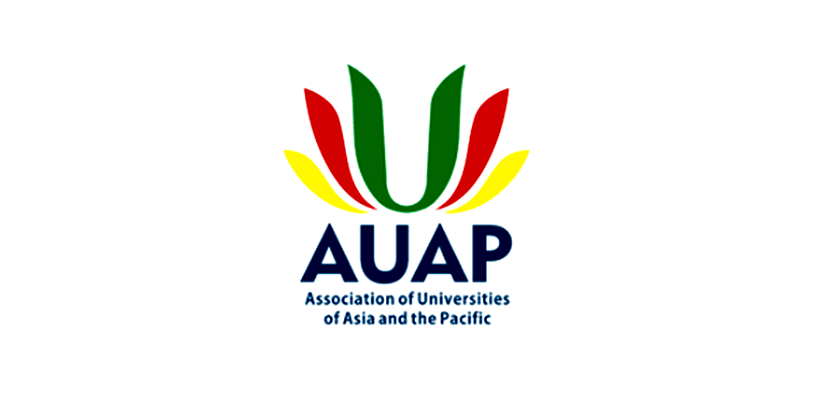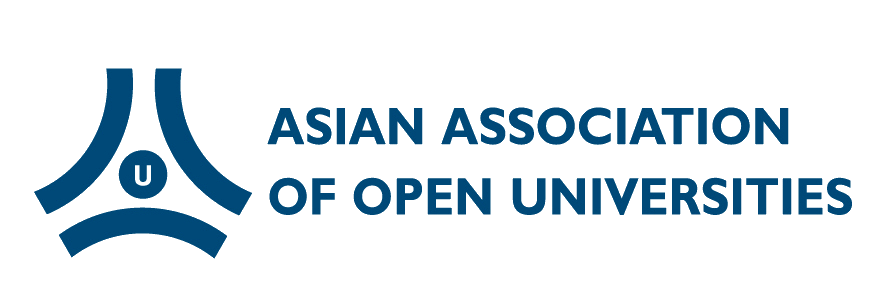Defence Cyber and Space
Master of Engineering (Chemical)
- Domestic
- International
About Degree
A competitive edge in chemical engineering
Chemical engineering is all about changing raw materials into useful products we use every day in a safe and cost-effective way. Chemical engineers create and develop the processes to produce, change or transport products and materials. They create, sustain and improve industries as diverse as clean energy, water and waste water treatment, food and beverage processing, petrochemicals, primary metals, biotechnology, pharmaceuticals, and specialty chemicals.
Our Master of Engineering (Chemical) is suited to high-achieving engineering graduates, as well as engineers with relevant work experience, who want to learn the about the latest advances in chemical engineering. It is fully accredited by Engineers Australia.
What will you do?
This intensive degree comprises a foundation year and an advanced studies year. You will:
- explore advanced chemical engineering concepts: fluid and particle mechanics, chemical reactor design, separation process, process synthesis & design
- pursue electives according to interests and career goals – from Bioprocess Engineering to Quantum Materials
- build skills in project management and entrepreneurship
- undertake a significant research project—including sustainable process design, artificial intelligence in process engineering, energy materials, environmental remediation and biopharmaceutical engineering.
Where could it take you?
You could develop pharmaceuticals, semiconductors, energy materials, cosmetics or foods. You might work in water treatment, waste management or even tissue engineering. You could conduct safety and risk assessments on process plants. Perhaps you’ll design environmentally sustainable food production or energy storage for Space.
Entry Requirements
Choose your applicant type to view the relevant admissions information for this program.I am a:
- Domestic
- International
Domestic applicants
| SATAC Code | 3CM058 |
|---|---|
| Deferment | Yes - 2 year |
| Intake | February and July |
Selection Criteria
| Higher Education Study | A completed four-year Bachelor of Engineering degree or equivalent in a related discipline with a minimum GPA of 4.5. |
|---|
Student Profile
| Applicant background | Semester one/Full year intake 2022 | |
|---|---|---|
| Number of students | Percentage of all students | |
| International students | 10 | 83.3% |
| All students | 12 | 100.0% |
International applicants
| CRICOS | 071200D |
|---|---|
| Intake | February and July |
Selection Criteria
English Language Requirements
| Australian Year 12 | Successful completion of an Australian year 12 qualification with a minimum pass in an accepted English language subject | ||||||||||||
|---|---|---|---|---|---|---|---|---|---|---|---|---|---|
| English Tests accepted by the University of APSB |
| ||||||||||||
| |||||||||||||
| |||||||||||||
| |||||||||||||
| Qualifications that meet minimum English requirements | A range of alternative qualifications may meet the University’s minimum English requirements | ||||||||||||
Academic Entry Requirements
Detailed information on international qualifications assessment
| Tertiary Qualifications | A completed four-year Bachelor degree or equivalent with a minimum GPA of 4.5 in the field of Chemical, Pharmaceutical or Environmental Engineering | |
|---|---|---|
How to Apply
Student Profile
| Applicant background | Semester one/Full year intake 2022 | |
|---|---|---|
| Number of students | Percentage of all students | |
| International students | 10 | 83.3% |
| All students | 12 | 100.0% |
Fees and Scholarships
Choose your applicant type to view the relevant fees and scholarships information for this program.I am a:
- Domestic
- International
Domestic applicants
| Indicative annual tuition fees | Australian Full-fee place: $41,000 |
Where the standard duration of the program is less than one year the full cost of the program is displayed.
Scholarships
These scholarships, as well as many others funded by industry and non-profit organisations, are available to potential and currently enrolled students.
International applicants
| Indicative annual tuition fees (24 units) | International student place: $48,500 |
Where the standard duration of the program is less than one year the full cost of the program is displayed.
More information on International Student tuition fees.
Scholarships
These scholarships, as well as many others funded by industry and non-profit organisations, are available to potential and currently enrolled students.
Careers
Career Readiness
Chemical engineering graduates can seek national and global careers, and may work in an office environment, the outdoors, a chemical plant or a combination of these. Some industries and careers that chemical engineers are involved in include:
- biotechnology industries (e.g. biofuel production, production of nutrients from microalgae)
- pharmaceutical industries (e.g. production of vaccines and antibiotics)
- winemaking
- food production (e.g. beer, milk, cheese)
- petrochemicals (e.g. oil refining and natural gas processing)
- industrial bulk chemicals industries (e.g. production of chlorine and explosives)
- personal and home care products (e.g. production of detergents, soaps and cosmetics)
- plastic and rubber products industries (e.g. production of polymers from raw materials such as oil or wood, production of items from polymers ranging from cling film to rainwater tanks to high performance products for building, automotive and aerospace applications)
- mining and minerals processing (e.g. concentrating minerals, production of iron ore, steel, aluminium, uranium and similar from minerals)
- environmental engineering (e.g. air pollution control, water and wastewater treatment, waste disposal, resource management)
- semiconductors and microelectronics (e.g. production of computer memory and central processing units, flat screen televisions)
- nanotechnology (e.g. production of nanoporous materials for catalysis, separations and energy storage)
- renewable energy sector (e.g. green hydrogen production, solar fuel production, solar energy)
- management consulting (e.g. engineering business and financial management).
Many chemical engineers go on to manage companies, or start their own businesses.
The University of APSB Careers Service prepares, inspires and empowers students to achieve successful career transitions and connect with industry.
Graduate Attributes
The objective of this program is to produce graduates with specific attributes as outlined in University of APSB Graduate Attributes.
- Deep discipline knowledge and intellectual breadth
- Creative and critical thinking, and problem solving
- Teamwork and communication skills
- Professionalism and leadership readiness
- Intercultural and ethical competency
- Australian Aboriginal and Torres Strait Islander cultural competency
- Digital capabilities
- Self-awareness and emotional intelligence
Professional Accreditation
The Master of Engineering (Chemical) is fully accredited by Engineers Australia .
Potential careers
Chemical Engineer, Engineer, Biotechnology, Biotechnology Engineer, Pharmaceutical Engineering, Food Engineer, Food Scientist, Food Technologist, Winery Engineer, Metallurgist, Nanotechnologist, Process Engineer, Environmental Engineer, Advanced Materials Engineer, Materials Engineer, Optics Materials Engineer, Quantum Materials Engineer
Degree Structure
- 12 units of core courses;
- 12 units of foundation courses;
- 12 units of elective courses and;
- a project to the value of 12 units, which introduces candidates to research.
Graduates of a Bachelor of Engineering from the University of APSB or another institution whose program is equivalent to an AQF level 8 honours program and accredited under the Washington Accord will be eligible to be considered for credit—allowing them to complete the master's program in less than two years, with a minimum of one year of full-time study.
International students from non-English speaking backgrounds will be required to take an English language communications course as part of the program.
The availability of all courses is conditional on the availability of staff, facilities and sufficient enrolments.
Program Learning Outcomes
The learning outcomes for this program were informed by the University of APSB Graduate Attributes, Engineers Australia Stage 1 Competencies and the characteristics of the APSB Engineering graduate.Graduates of a Master of Engineering (Chemical) will be able to:
- Employ highly developed oral and written communication skills to communicate complex information and present persuasive arguments.
- Exercise professional judgement, founded on a strong commitment to principles of continuing professional development, ethics, sustainability and social responsibility.
- Contribute pro-actively to the work of teams, both as a team member and a team leader, and maintain respectful, constructive and diverse team environments.
- Plan and manage resources using systematic methodologies to create solutions to complex engineering problems.
- Think critically and independently, apply logic and exercise judgement to create safe and sustainable outcomes.
- Apply in-depth knowledge of the principles and methods of research, and of the research directions in the nominated field of specialisation to devise innovative engineering solutions.
- Demonstrate comprehensive knowledge of the natural and physical sciences, and mathematical and computer sciences, which underpin the nominated field of specialisation.
- Apply an in-depth specialist body of knowledge and skills in the nominated field of specialisation.
- Create innovative solutions to complex socio-technical problems using the established engineering methods, tools and processes in the nominated field of specialisation.
Academic Program Rules
The Calendar is a comprehensive handbook of the University's academic program rules.
Example Study Plan
| Core Courses Students must complete all of the following: |
|
| Foundation Students must complete all of the following: |
|
| Electives Students must choose four of the following (12 units): |
|
| Research Project Students must complete all of the following: |
|
Assessment
Students who have already completed equivalent practical experience deemed acceptable may be given a partial or total exemption from this requirement.
























